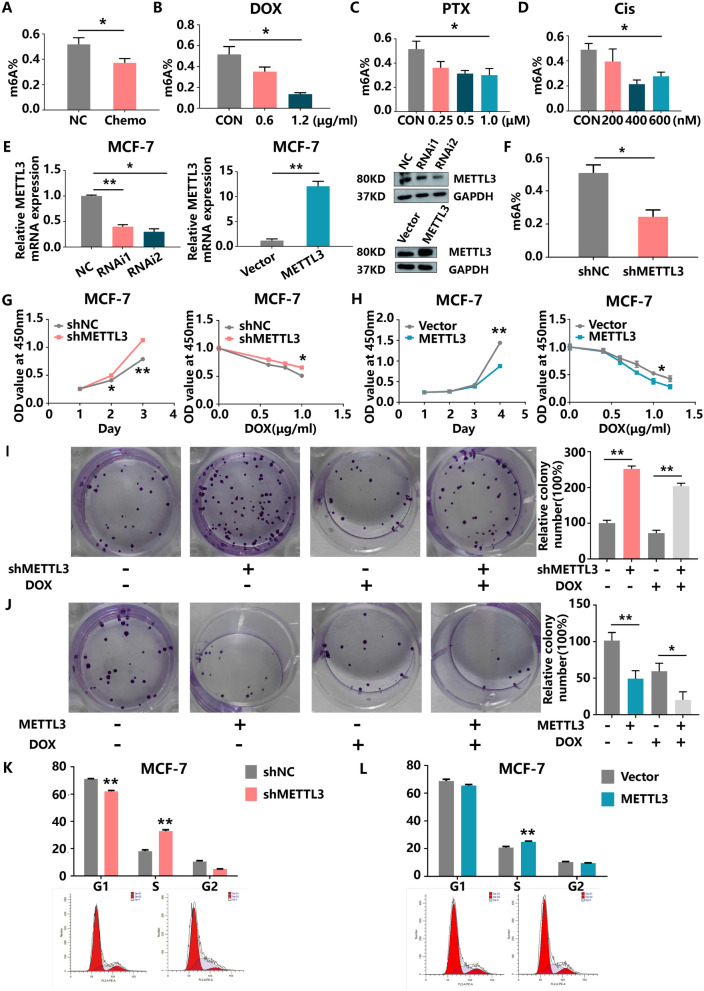Fig. 2.
METTL3 is responsible for chemotherapy-induced m6A modifications, and METTL3 depletion enhances HR+HER2− BC cell growth. A m6A levels in patient samples collected after chemotherapy compared with their corresponding controls. B C and D m6A levels in MCF-7 cells treated with DOX, PTX or Cis for 24 h compared with those in the control cells. E The protein and mRNA levels of METTL3 in MCF-7 cells with knockdown or overexpression of METTL3 were measured by western blotting and qRT-PCR, respectively. F The global m6A modification levels in METTL3-knockdown and control MCF-7 cells were determined by colorimetric analysis. G Knockdown of METTL3 improved the proliferation ability of MCF-7 cells in the presence or absence of DOX for 24 h. H Overexpression of METTL3 impaired the proliferation ability of MCF-7 cells in the presence or absence of DOX for 24 h. I Knockdown of METTL3 improved the colony formation ability of MCF-7 cells in the presence or absence of DOX for 24 h (left panel). Quantification of the colony formation assay results (right panel). J Overexpression of METTL3 impaired the colony formation ability of MCF-7 cells in the presence or absence of DOX for 24 h (left panel). Quantification of the colony formation assay results (right panel). K and L Cell cycle distribution of MCF-7 cells with knockdown or overexpression of METTL3 was analysed by flow cytometry. Ap, apoptosis phase; G1, DNA pre-synthesis phase; S, DNA synthesis phase; G2, DNA post-synthesis phase

